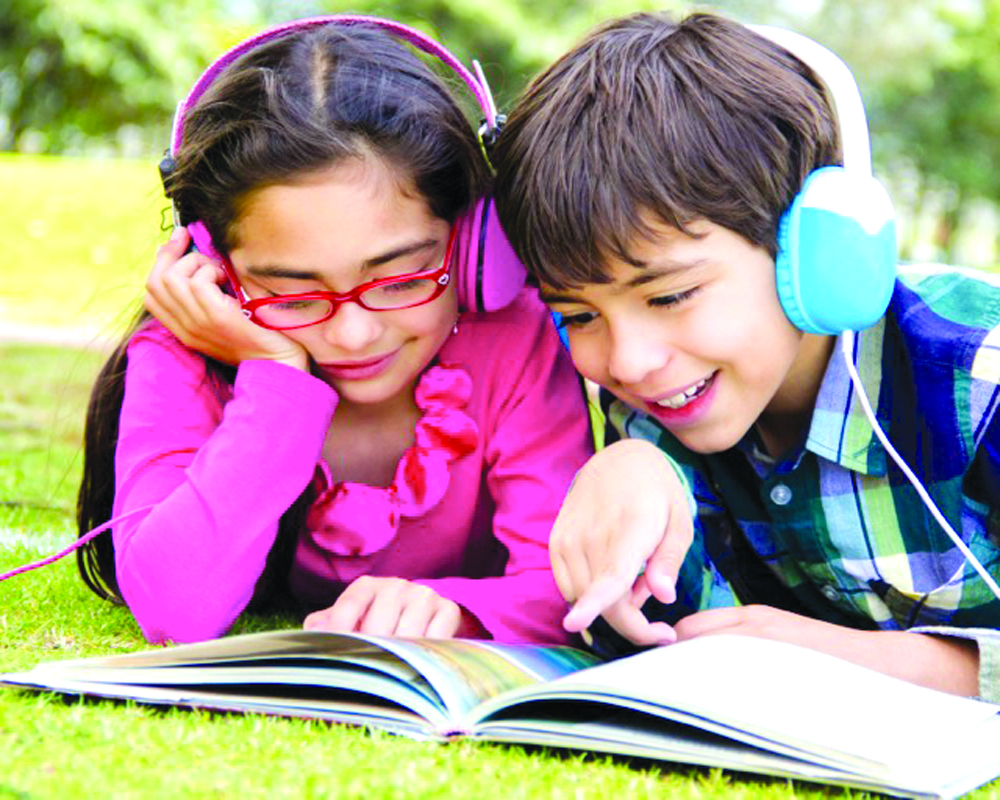In the fast-changing landscape of education, we shall soon see audio taking over traditional and video learning to educate young India
In the year 2020, the world has seen people shifting from offline to online for many life requirements. The year somewhat became the watershed moment for various digital platforms like Video OTT, Edutech, Pharma, Fintech etc., which saw an unexpected surge in numbers. As a country, we are brilliant at adapting to change, look at how we embraced fintech & edu-tech both so important for our survival. The adaptation which was slowly happening in 2019 got expedited due to the spread of pandemic and the followed lockdown.
The most significant need for the bottom of our social pyramid has always been ‘roti, kapda aur makaan’ or succinctly put, education (read knowledge) and financial stability, even more so when pandemic was reaping havoc.
Today, learning is the fastest-changing landscape with a virtual race among various organisations to deliver knowledge and up-skilling content through latest and complex technologies. However, this approach may only work well for the metros of India with upwardly mobile TG. If we consider the TG living in tier two, three and four towns and villages, the requirement might be very different. Bharat makes up the most significant part of Indian digital users accessing the internet on mobile devices. The real issue is not the availability of high-quality content and implementation of complex/fancy tech to deliver it to TG but the ease with which the TG can consume the content on devices. To summarise, the key challenges would be :
- Increased screen time on low-end devices with battery challenges.
- Patchy internet to be able to watch videos seamlessly.
- Not truly vernacular.
- Cost of content and hence the high subscription.
Need of the hour
What is more relevant and need to be made available to young India is a platform/medium which will make it spontaneous for people to access decent quality content (even if it is non-exclusive) effortlessly with minimal tech and underlying infrastructural requirements. It is only then, we will be able to see the next billion users using digital learning platforms to learn and get empowered to achieve their learning goals.
Audio is the answer
Audio is the only way to provide all of the above without compromising the quality of learning except for a few specific subjects requiring live/visual session for better understanding. Audio will democratise the learning ecosystem from every aspect. It will allow the masses to acquire knowledge and learn the subjects of their interest without paying beyond their financial capacities or compulsive buying of high-end devices/data packs.
Not shooting in the dark
Looking at the global trend from the biggest audio markets — US and China, audio will take over as most preferred media by masses across India.
For instance, in the US, Spotify has spent $400mn to acquire Gimlet, Anchor and Parcast to acquire podcasting capabilities. Apple acquired Scout FM in Sep 2020. Simultaneously, in China audio platforms like Ximalaya FM, Lizhi FM (US IPO), DeDao is serving more than 500mn users. De Dao, another Chinese audio content platform, contracts high-profile experts to record podcasts teaching topics in their field. Listeners navigate a marketplace of audio courses and subscribe to the ones they believe will get them (or their children) an “edge” There are various courses like workplace communication, investing, accent reduction, Chinese history and many more.
Last year the company had served seven million customers, and none of the content was free. Audio courses drive more than 50 per cent revenue for Ximalaya FM and QingTingFM.
Screen-based learning competes with distractions like Facebook and Netflix for users’ attention. By making audio their primary learning consumption mode, people can fit courses into busy lives and easily allow for a habit.
Future trends in knowledge and audio
India is the youngest country with 850mn people below the age of 35 years. For this young population, the most significant need is education and financial security. To get better economic opportunities, people need to up-skill, but being engaged in the daily job they have limited time to learn and up-skill themselves.
For example, Uber driver or Swiggy delivery person work eight to 10 hours a day and have no time to learn and upgrade themselves. While their hands and eyes are engaged, they can leverage their ears to boost their skills by converting their non-learning time into learning time.
Audio has its merit over other mediums without imbibing the negatives of respective mediums like video and print. It provides various benefits to the user, some important ones are as follows:
- Reduces screen time without reducing learning.
- Passive listening provides for more extended content consumption throughout the day.
- Creation and consumption of content are both much easier in audio format.
- Minimal hardware and connectivity required.
Year 2021 will be a year of audio providing for:
Reduction in screen time: Students would not sit in front of screen for long hours to gain knowledge. Parents & teachers both have been concerned with excess screen time for their kids.
Easy access to knowledge in local languages: Users across India will be able to get easy access to the best of educators, that too in their local language.
Offline to online classes: Local and small-time educators will reach millions and teach them in their local language. Thanks to the ease of content creation with audio.
Up-skill with one click: Small courses targeted to unlocking better financial opportunity will become a trend.
User convenience and ease: People will not migrate to larger cities to gain or share knowledge, creation of content and consumption as both are much easier in audio format.
We shall soon see audio taking over traditional and video learning and will have a much larger mass appeal and usage to educate young India users this year.
(The writer Pulkit Sharma is CEO & Co-founder of Khabri.)


























